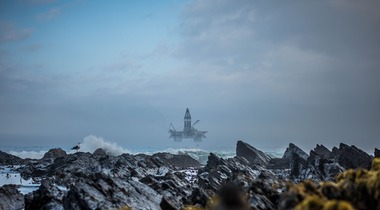Climate change is one of the most pressing issues of modern history. Countries around the world are desperately trying to figure out how we can keep global temperatures below a 1.5 Celsius increase.
While this is a massive global problem, one thing is for sure—we need to use every tool at our disposal to protect the environment.
It’s no secret that the emissions generated from the Oil and Gas industry have become increasingly important environmental concerns. The industry literally fuels our world—and that isn’t an easy, or environmentally friendly, thing to do.
With the Paris agreement in sight, the oil and gas companies have a major role to play.
The future of energy is green. We just aren’t there yet.
Oil and gas companies know that change is afoot.
Recently, Deloitte surveyed 600 C-suite executives and other senior corporate leaders from oil and gas companies, chemical and specialty materials companies, power and utilities, and industrial manufacturing. The survey found that the executives of oil and gas companies were “well aware” of the need for sweeping change and decarbonisation.
It’s also worth noting why decarbonisation and diversification have been growing themes in oil and gas. To start, public pressure for green energy has cast oil and gas in a negative light. Making a green transition is increasingly being seen as gaining a competitive edge over other companies that rely on fossil fuels.
But public pressure isn’t the only reason companies are changing. 71% of the CEOs listed “improving the environment” as one of the key benefits of decarbonisation. And oil and gas are becoming more volatile investments. The pandemic sent the price of oil to a record low this year, which caused investors to pull out of the industry.
Oil and gas companies are taking steps in the right direction.
A slow growing trend within the industry has been portfolio diversification. As the effects of climate change have grown more obvious, companies have changed their investment strategies to match the needs for the 21st century. 50% of the respondents to Deloitte’s survey claim their companies are already changing investment priorities toward greener, more efficient energy sourcing.
These investments—largely concentrated in solar PV and wind energy—remain low, but proved fruitful. When the price of oil plummeted because of the pandemic, green energy investments remained relatively stable—and companies saw how valuable the green investments could be.
Companies are also developing long-term strategic plans that strive for a more sustainable future. Oil and gas companies—both privately and with government partnerships—have been exploring green energy for years. So it’s not surprising to see that 90% of the respondents said their company has developed—or is currently developing—a long-term plan away from fossil fuels. And sustainability is becoming more important at all levels within oil and gas. 56% of oil and gas executives reported that compensation at their company had some link to decarbonization efforts.
“But in the longer term, the transition toward a lower-carbon future remains on track, particularly for the larger integrated oil and gas companies.” (Source: Deloitte)
One way oil and gas is bringing about that change is through smart investments in technology. Deloitte’s survey found that 59% of respondents cited digital technologies that improve energy efficiency and management as the most important tech to transition effectively to a greener future. As these kinds of technologies become less expensive and more easily accessible, companies are seeing the enormous advantages they bring in operational efficiency and cost reduction.
The transition requires coordination, investment, and large-scale project planning. And to make green energy successful, we need to use every tool we have.


